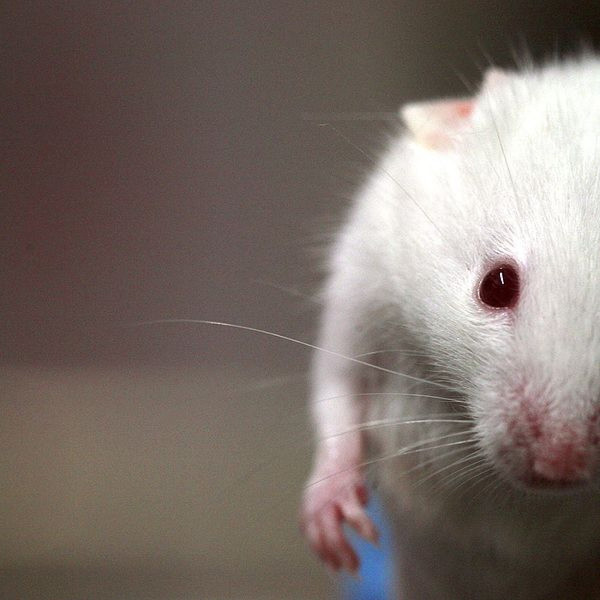Unbalanced Internal Clock Makes Mice Fatter, More Prone To Insulin Resistance

While lack of exercise and a poor diet are certainly the main factors in weight gain and poor health, a new study in mice confirms that the timing of eating can also play a supporting role.
Basically, “it’s not only what you eat, but when you eat it that matters,” Vanderbilt University scientist Carl Johnson said.
It’s well-known that humans and other animals have a metabolism that changes throughout the day. The same amount of calories eaten may result in more or less fat storage, depending on the time of day that you consume it.
Previously, scientists had tested the effects of disrupting circadian rhythm by restricting mice to eating either during a night period or a day period. Johnson and his colleagues took it a step further and studied mice with internal disruptions to their biological clock -- either from a genetic defect or after being exposed to so much light their bodies' ability to keep time was thrown out of whack. These disrupted mice had much different eating and activity patterns than the normal mice. The team published their results on Thursday in the journal Current Biology.
They found that both types of arrhythmic mice were prone to obesity, gaining more fat even when fed the same diet as normal mice. While all the mice had varying levels of insulin resistance throughout the day, the researchers saw that a disrupted internal clock predisposed the mice toward an insulin-resistant state -- something similar to a person with pre-type 2 diabetes.
It’s a bit risky to directly extrapolate too much from findings in mice to advice for people. Johnson and other scientists want to look at the effects of circadian rhythm disruption in human subjects before dishing out authoritative tips on how to eat in harmony with one’s internal clock.
But what the researchers saw in the mice may explain why people working the night shift tend to have health problems, forced as they are into abnormal sleeping and eating patterns.
Even people that work the day shift could be feeling the effects of living “against” their biological clock. Many facets of modern living, with most people working inside, living under artificial lights, going to bed with the phosphorescent glow of a laptop or a TV in their faces, could be mucking up a person’s internal clock.
“It may well be that our tendency to go after supper to sit in front of TV and eating well toward bedtime that these may be unhealthy practices,” Johnson said.
It does seem like a long fast between supper and breakfast is a healthy habit, along with the Mediterranean practice of having a big meal in the middle of the day, with a lighter supper.
Throughout history, mice and men have been “evolving in response to a rhythmic environment,” Johnson said. “The optimal response is a rhythmic environment within ourselves.”
But now, with many modern people operating on a much different schedule than our ancestors, we find our bodies and our lives falling out of sync. It remains to be seen whether or not we can wind the clock back.
SOURCE: Shi et al. “Circadian Disruption Leads to Insulin Resistance and Obesity.” Current Biology published online 21 February 2013.
© Copyright IBTimes 2024. All rights reserved.





















